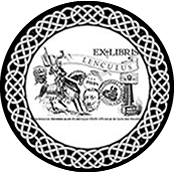
George Washington Armstrong also known as Judge Armstrong (January 26, 1866 – October 1, 1954) of Fort Worth, Texas, and Natchez, Mississippi was a southern millionaire who founded the Judge Armstrong Foundation in 1945. Armstrong was the son of an Methodist minister and was of Scots-Irish background.
He wrote several books and pamphlets on Zionism and Jewish financial manipulators on Wall Street some of which he disseminated thru his foundation.
In 1949 Armstrong grew into national prominence when he offered a gift of oil rights worth up to fifty million dollars to the Jefferson Military College in Natchez, Mississippi with the stipulation they reject the admission of Negros and Jews and teach the tenants of White supremacy. Due national publicity and outrage the college had to reject the offer.
George Armstrong had been an organizer for the Ku Klux Klan in the 1920s. In 1932 he unsuccessfully ran for Governor of Texas.
In the late 1940s Armstrong hired General George Van Horn Moseley to help in his publishing efforts.
Ebook, PDF :
Third zionist war
Rothschild Money Trust
World Empire
The zionist
George Washington Armstrong, attorney, oilman, industrialist, farmer and rancher, and author, the son of Ramsey Clarke and Matilda Moseley (Smyth) Armstrong, was born on January 26, 1866, in Jasper County, Texas. His father was a minister, principally in the Fort Worth and Waco districts of the Methodist Episcopal Church, South, and was founding trustee and later vice president of Polytechnic College (now Texas Wesleyan University) in Fort Worth. His mother was a daughter of George W. Smyth, signer of the Texas Declaration of Independence. Armstrong was the eldest of six children. He was educated at Marvin College and the University of Texas, where he received his bachelor of laws degree in 1886. After practicing two years at Ennis he moved to Fort Worth, where he founded several law partnerships and was elected alderman in 1890. In November 1894 he was elected county judge of Tarrant County; he served two terms before being defeated for renomination in 1898. He was called "Judge" thereafter.
In 1903 Armstrong abandoned his law practice and went into the oil and banking business in South Texas. As an oil producer he was active in the development of the Batson field in Hardin County (1903–05), the Petrolia field in Clay County (1905–07), and several major producing fields in Adams County, Mississippi (1943–54). His banking ventures included significant investments in the First National Bank of Sour Lake, Texas (1903), the Stockyards National Bank (1905), and two privately owned banks organized as George W. Armstrong and Company. He was president and principal stockholder of the Denison Mill and Elevator Company, president and principal stockholder of Hubbell, Slack and Company, a gin and cotton-exporting concern, and founder of the Texas Steel Company, the Texasteel Manufacturing Company, and the Liberty Manufacturing Company. He developed the Horseshoe Ranch at Hickory, Oklahoma, into a 25,000-acre showpiece. He sold it in 1917 and transferred his livestock to newly purchased holdings (ultimately 40,000 acres) in Adams County, Mississippi. These farming and ranching operations were not profitable, but timber and oil income reversed his farming losses. "Farming is my hobby if I have one, and it is an expensive one," Armstrong wrote.
He was the founding president of the Texas Chamber of Commerce and an early advocate of cooperation between Dallas and Fort Worth in civic development. He was a Methodist, a Democrat with a keen interest in politics, and an unsuccessful candidate for Congress in 1902 and for the Democratic nomination for governor in 1932. He wrote numerous tracts over a period of thirty-five years. These publications expressed his frequently controversial views, which included opposition to the Federal Reserve System, advocacy for the repeal of the Fourteenth and Fifteenth amendments, anti-Zionism, anti-Communism, and strong support for segregation and the doctrine of white supremacy. He established the Judge Armstrong Foundation, and in 1949 he organized the Texas Educational Association. Both organizations were dedicated to promoting his views on racial, political, and financial matters. Armstrong attracted national attention in 1949 when he offered to provide Jefferson Military College of Washington, Mississippi, with a large endowment on the condition that the school exclude blacks, Jews, and Asians.
Armstrong was twice married: in 1887 to Jennie May Allen, who died in 1930, and in 1933 to Mary Cozby. Three children were born of his first marriage. Armstrong died on October 1, 1954, in Natchez, Mississippi, after a stroke.



